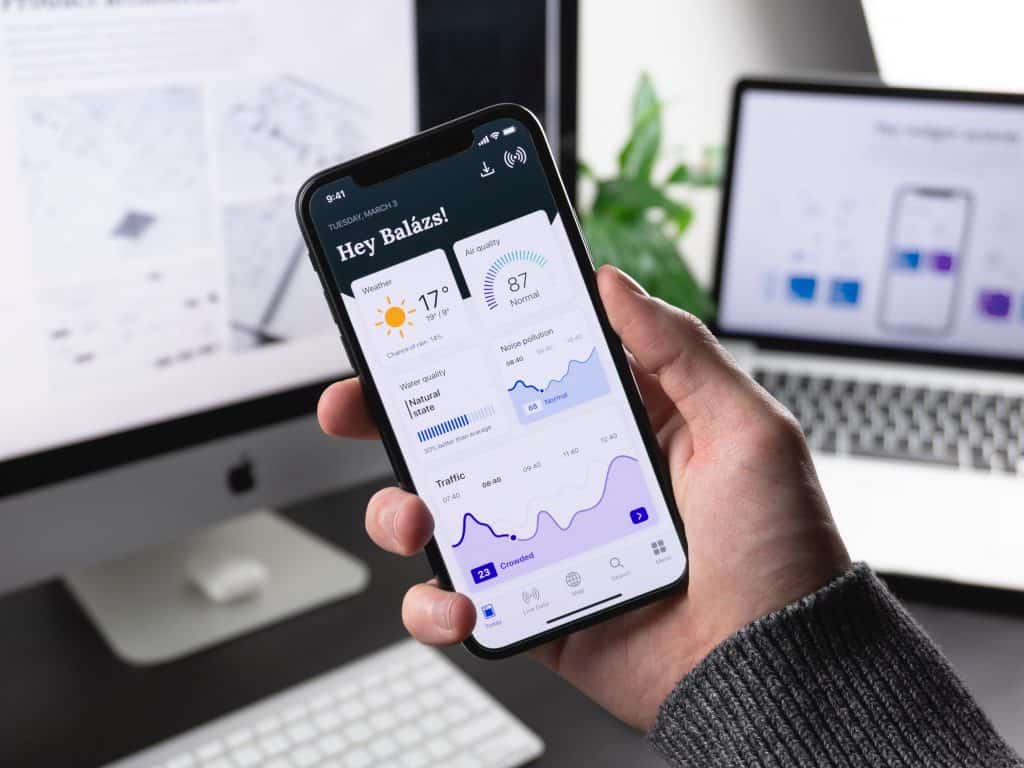More and more users conduct their day-to-day activities exclusively on their cell phones. This can pose a big issue for business, but luckily mobile CRMs are here to save the day. However, having a CRM on your office laptop isn’t enough. Mobile CRMs help business owners succeed no matter where they are.
We’ll look at a few main characteristics of #mobile #CRMs and how to integrate them into your #business in this article. Click To Tweet
Why are mobile CRMs important?
Customer Relationship Management (CRM) software is used to organize and track interactions with customers and leads. Field agents and salespeople can access customer information on the road with a mobile-friendly CRM. As a result, companies can keep up with the ever more hectic business climate and continue to generate leads, build client connections, and market their brand whether they’re at work or not.

There is a lot of CRM software out there, so picking the right one for your company can be tough. Apart from vital features like real-time customer tracking, and process automation, the ability to go mobile is the one element your CRM should have. However, just like everything else, mobile-friendly CRM systems have their pros and cons.
The Pros and Cons of a mobile CRM system
Pros:
- They require little to no setup, and you’re pretty much good to go right away
- They are portable and flexible, aka their business meets takeout
- They provide much easier access to data in real-time without the need of popping down to the office
Cons:
- The UI might be a bit clunky, and that may turn off some from using them. While this may be an issue, and requires a few workarounds, once you get the hang of it, it’s quite alright.
- You become reliant on either having mass amounts of data on your phone or public connectivity, which may prove an issue for some.
- Data can be compromised if one of the team members loses or damages their phone.
Features to Look for in a Mobile CRM
Marketing and Real-Time Analytics
It doesn’t really matter whether you’re a startup with a limited budget and resources or a huge company in need of an efficient and accessible system; investing in a great solution with access to these features is the best way to ensure real-time data and use it properly for your upcoming marketing campaigns.

The first reason is straightforward: if you utilize different analytics and marketing software, you will get all the data required to fuel your next marketing campaign – without data, there can be no campaigns. Not having these features slows the process down and allows for the element of human error. And that’s the number one thing we’re all hoping to evade.
So, what happens once you’ve finished your campaign? If your mobile CRM doesn’t have these features, you might have some stats available to you, but crucial information like open and click-through rates will be nowhere on the radar. That’s why it’s important to keep this one in mind.
An Easily Accessible Dashboard
Sometimes you just need to see all of the information at a single glance. You can customize your dashboard with a handy mobile CRM to keep track of everything in one centralized hub.
Real-time progress on leads, sales, and service activity can be displayed on your CRM dashboard.
You can have alerts displayed on your screen to avoid missing any deadlines. In addition, a good mobile CRM is also going to allow for a lot of customization, so you’ll be able to add whatever it is your company needs. If you make content, maybe alerts on trending topics or something similar. The possibilities are endless.
Automation
Marketing automation is essential to many businesses in various fields. Automation allows you to create customized marketing campaigns without doing the work yourself. Plus, it changes in real-time based on user behavior, even when you’re not there.

It’s also beneficial to your customers; mobile marketing automation ensures that they get the most relevant information for their interests as soon as possible. While this can mean many things, some of the most common features of an automated mobile CRM are segmentation, in app-messaging, automatic notifications of conversions or sales, customizing the frequency of automated marketing messages, and so on – you get the idea.
Customer Management
Every CRM platform revolves around managing clients and your business relationship with them. You can keep track of social media activities on Twitter, Facebook, YouTube, and what have you using a mobile app.
Every good CRM should provide you with a record of every single interaction a consumer has with your company.
This makes it easy to figure out their preferences and make personalized recommendations based on the history of their interactions – what they like to read, what they normally purchase, etc.
Customer tracking also allows you to pinpoint exactly where prospects are in the sales funnel. You can also always focus on more profitable leads and abandon those that seem to be going nowhere if the CRM is comprehensive enough to give that sort of information.
Customer service in real-time
Customer service and support services incorporated into mobile CRMs allow you to respond to customers quickly. Instead of waiting until the next working day to reply to time-sensitive questions, customer service agents can now respond to any request or complaint in a manner of minutes.

In addition, your customer support team can use the data stored on the platform to do a better job. Knowing their interaction history makes them more likely to know what the customers want or need.
Final Thoughts
With the rise of technology in the last couple of years, the business has rapidly changed. Not only does your team need to have access to information 24/7, but customers also expect you to be available at any time, day or night. A traditional CRM is something you cannot go without, but a mobile-friendly version may yet help businesses keep up to speed with the ever-growing customer needs.